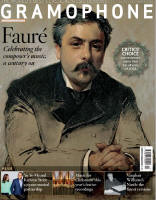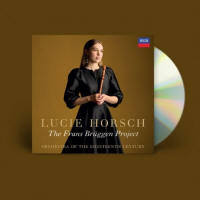Texte paru dans: / Appeared in:
|
|
|
|
|
|
‘The Frans Brüggen Project’ is a celebration of a significant part of the legacy of the late Dutch conductor and recorder player, whose passion for the instrument led him, over the course of a long career, to amass an extraordinary collection of historic recorders. But the vitality and freshness of Lucie Horsch’s playing on this, her latest and arguably most ambitious album, is due less to Brüggen’s inspiration and more to the unique circumstances under which it was recorded. As Horsch reveals, the fragility and age of the instruments to which she was given access by Brüggen’s widow, the art historian Machtelt Brüggen Israëls, meant she had very limited time with each of them. ‘With the most fragile recorders, we were only able to do two full takes of a piece’, Horsch explains in the accompanying booklet note.
At the heart of the album is Horsch’s deft handling of these historic instruments, each with its own unique provenance, character and pitch, ranging from a mellow tenor recorder in B flat by Thomas Stanesby to a sopranino in F by Benjamin Hallett. The range of instrumental timbres and textures on offer is also impressive, including solo pieces such as the charming selections from John Walsh’s The Bird Fancyer’s Delight; chamber works like Telemann’s A minor Trio Sonata; and the Adagio from Marcello’s D minor Oboe Concerto. Yet whether solo, joined by HIP stalwarts such as violinist Rachel Podger or accompanied by the always marvellous Orchestra of the Eighteenth Century (which Brüggen co-founded), Horsch is as sensitive to each instrument’s idiosyncrasies as she is to the demands of the music, her effortless virtuosity and stylish phrasing, articulation and ornamentation a veritable Recorder Fancyer’s Delight. |
|




